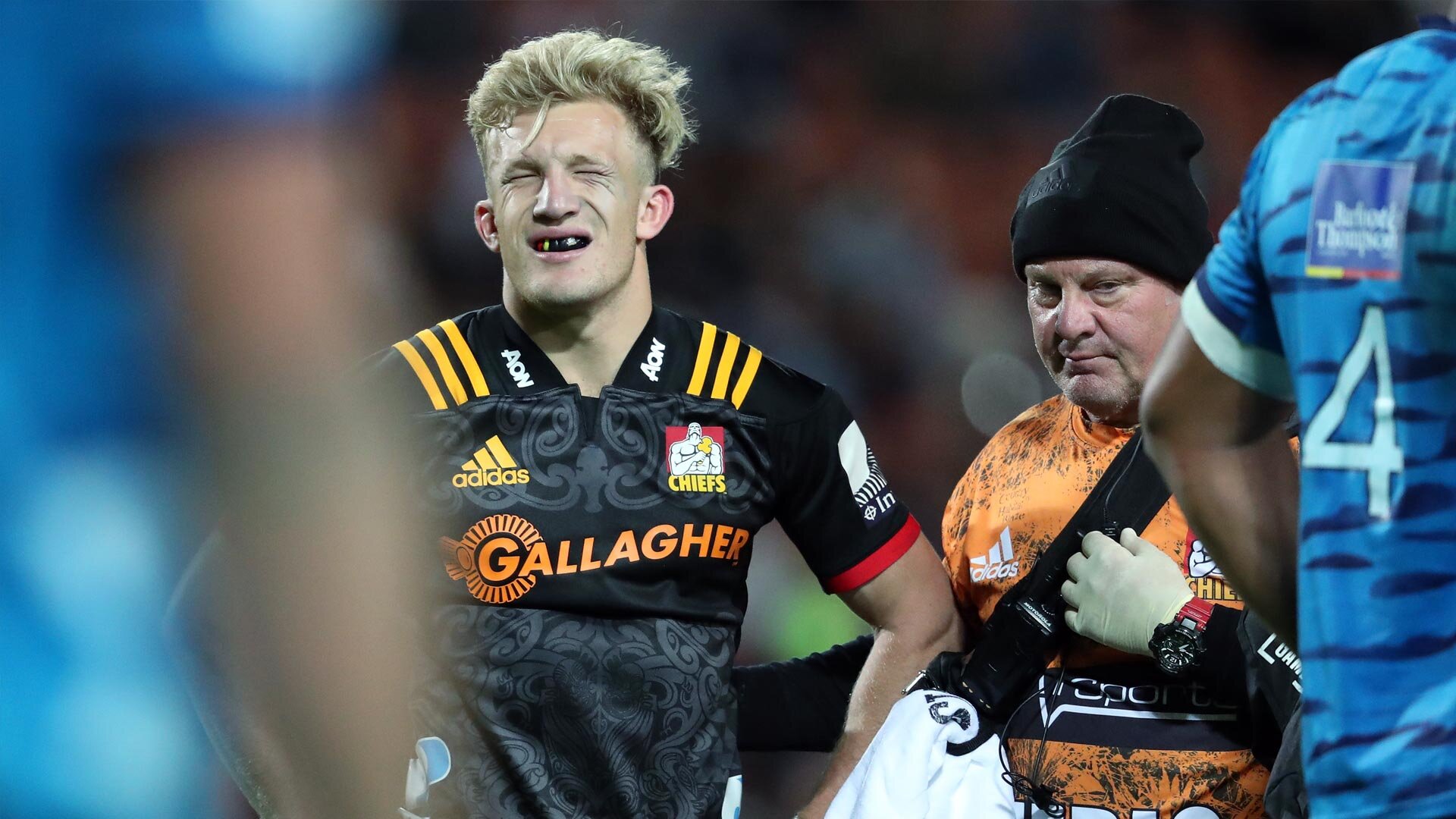The lonely road ahead for McKenzie will hopefully make him a better player

Sport can be cruel sometimes, with no explanation or reasoning, and twist someone’s life in a split second. The highs are euphoric and the lows are depressing for professional athletes. For Chiefs dynamo Damian McKenzie, the lonely road ahead will be a mental battle as much as a physical one.
The star’s ruptured ACL will sideline him for eight months, ending his year and his dream of playing in this year’s World Cup. The initial diagnosis will be hard to process and feelings of solitude will creep in along with this hard realisation.
This is the dark side of professional sport where everything that a player enjoys about this career is taken away – the adrenaline of playing in front of thousands, the camaraderie of being a part of the team, the social aspect of training with your mates every day and of course, playing the game they love. For highly competitive athletes, missing out on this is torture.
You can watch the game but can’t be a part of it, you see your team train but you aren’t involved, and slowly the mind plays tricks on you.
The rehab group is usually separated from the rest of the playing team, completing their own tailored programme of work. The physical isolation begins to build invisible walls, and the feelings of loneliness are hard to fight off.
At the same time, the self-doubt is impossible to ignore – will I be the same player again? Will I make a full recovery? The mind has to deal with fear, uncertainty, and doubt, which can lead down a dark path of negative thoughts. Throughout this process, he has to rebuild his mind as much as his knee to come out the other side in a better place.
It almost becomes an identity crisis – everything that was his life won’t be for the next eight months. It shatters the illusion that rugby can provide for a long time, with a taste of life without playing. It is something that every player knows in the back of their mind will come one day, but it is still a scary prospect to come to terms with.
He can take solace in the fact that he isn’t the first or the last to be forced through this challenge. In fact, many of his All Black teammates have first-hand experience with this that can offer advice or lend an ear to talk to. Sonny Bill Williams, Dane Coles, Ardie Savea, Nehe Milner-Skudder, and Sam Cane are just some that would be a wise support crew.
Many of them have gone through the dark days and come out the other side, Cane is still going through it. Even just returning to the field is a major milestone. For the public, it isn’t significant, but for the player, it is the end of a massive mental journey and that light can seem like a long way down the tunnel.
At 23-years-old this is the first major setback for McKenzie who has exhilarated since debuting in Super Rugby. His ability is special and, when you consider his size defies the way the modern game is heading, a source of inspiration for youth.
In Argentina, he is a fan favourite. They can’t believe the feats he is capable of on a field of giants. His game is similar to the flamboyant South American-style that we see in Ramiro Moyano, Bautista Delguy, Emiliano Boffeli, but even more so. It is no wonder that he is the favourite All Black in Buenos Aires.
The way he has captured the imagination of the Argentinians was surely going to be same for the rest of the world later this year in Japan. Everyone has been robbed of seeing one of the world’s most exciting players on the grandest stage in Japan. It is a shame no doubt.
McKenzie won’t be the same when he comes back to the field, but that’s meant in a positive way. The experience will change him mentally as it does every player, but this will add an almost assassin-like edge with cold-blooded determination to take off where he left knowing that time is precious and the game is unforgiving.
The experience will shape the rest of his career and hopefully, we will see him come back better than before.




































































